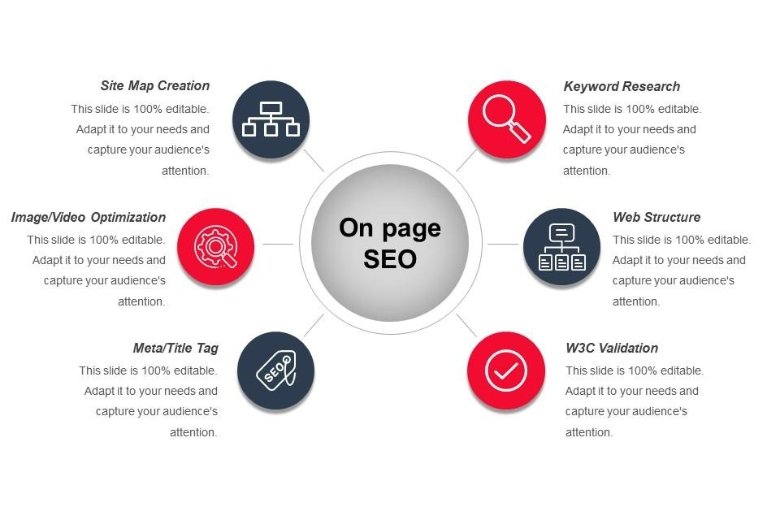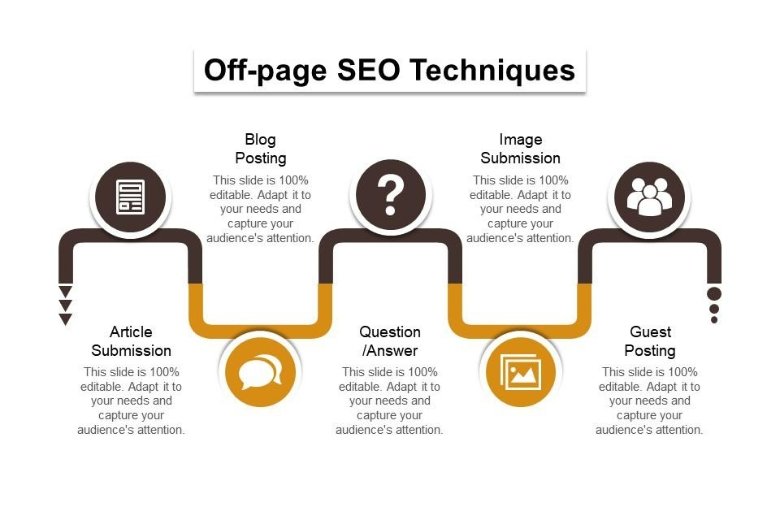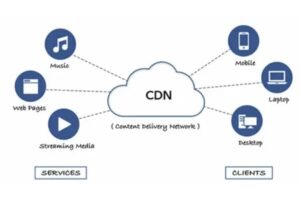There’s no denying the importance of having a well-optimized website for improving search engine rankings and attracting more organic traffic. Your website template plays a crucial role in determining your SEO success. In this comprehensive guide, we will explore key strategies and best practices for optimizing your website template to boost your SEO performance. From mobile responsiveness to page speed and metadata optimization, we will cover all the necessary aspects that shape your website’s search engine visibility and user experience. By implementing the tips outlined in this guide, you can enhance your website’s SEO performance and drive more organic traffic to your site.
Understanding SEO Fundamentals

What Is Search Engine Optimization?
On the vast landscape of the internet, search engine optimization (SEO) acts as the compass that guides users to discover relevant websites based on their search queries. In simple terms, SEO is the practice of increasing the quality and quantity of website traffic by enhancing its visibility to users of a search engine like Google.
How Search Engines Rank Websites
The core of SEO lies in understanding how search engines rank websites. The search engine algorithm considers numerous factors to determine the relevance and authority of a website in response to a user’s search query. The algorithms are constantly evolving, but generally, they evaluate factors like keywords, backlinks, content quality, and user experience to rank websites.
Search engines aim to provide the most valuable and accurate results to users, which is why it’s crucial for websites to optimize their content and structure in alignment with these ranking factors to improve their visibility and attract organic traffic.
Choosing the Right Website Template

Template Compatibility With SEO Practices
Some website templates may not be optimized for SEO practices, which can hinder your website’s performance on search engines. It is crucial to choose a template that is SEO-friendly and allows for easy optimization of meta tags, headings, and other on-page elements that improve search engine visibility.
Responsive Design and Mobile Optimization
To ensure a seamless user experience across devices, it is important to select a website template that is responsive and mobile-optimized. With the increasing use of mobile devices for browsing, having a responsive design is crucial for better rankings and user engagement.
Right website templates with responsive design automatically adjust their layout and content to fit different screen sizes, providing a consistent experience for users regardless of the device they are using. This not only improves user experience but also contributes to better SEO performance as mobile-friendliness is now a crucial ranking factor for search engines.
On-Page SEO Techniques for Templates

Optimizing Meta Tags and Descriptions
Techniques When considering optimizing meta tags and descriptions for your website template, it’s crucial to include relevant keywords that accurately describe the content on each page. Meta tags like the title tag and meta description play a significant role in how search engines determine the relevance of your website to a user’s search query. Make sure to write unique, compelling meta tags for each page to improve click-through rates and overall visibility on search engine results pages.
Structuring Content for SEO
Techniques One of the key aspects of on-page SEO for website templates is structuring content effectively. This means organizing your content with proper headings (H1, H2, H3, etc.), incorporating relevant keywords naturally throughout the content, and using internal linking to connect related pages. By optimizing the structure of your content, you can improve the overall readability and search engine visibility of your website.
OnPage Bear in mind, search engines prioritize websites that have well-structured content that is easy to navigate and understand. By implementing proper header tags, optimizing your content with keywords, and interlinking relevant pages, you can significantly enhance your website’s SEO performance and attract more organic traffic.
Technical SEO Considerations

Enhancing Website Speed and Performance
Many technical SEO considerations revolve around enhancing the speed and performance of your website. Site speed is a crucial ranking factor for search engines, as it directly impacts user experience and SEO performance. To optimize your website speed, focus on reducing image sizes, minimizing HTTP requests, utilizing browser caching, and leveraging content delivery networks (CDNs).
Implementing Structured Data and Schema Markup
Many technical optimizations involve implementing structured data and schema markup to provide search engines with more context about your website’s content. This markup helps search engines understand the meaning and relationship between different elements on your site. By implementing structured data and schema markup, you can enhance your chances of appearing in rich snippets and featured snippets, increasing your visibility and click-through rates.
Understanding the importance of structured data and schema markup can significantly impact your website’s SEO performance. By providing search engines with clear signals about your content, you can improve your chances of ranking higher in search results and standing out among competitors. Implementing structured data requires technical expertise but can yield significant benefits in terms of organic search visibility and traffic.
Off-Page SEO Strategies

The Role of Backlinks in SEO
OffPage SEO strategies play a crucial role in boosting your website’s ranking on search engine results pages. Among these strategies, backlinks are considered one of the most important. Backlinks are links from other websites that point to your site, indicating to search engines that your content is valuable and trustworthy. The quality and quantity of backlinks can significantly impact your website’s SEO performance, making it necessary to focus on building a diverse and high-quality backlink profile.
Leveraging Social Media
OffPage SEO also involves leveraging social media platforms to increase your website’s visibility and drive traffic. Social media signals are not direct ranking factors, but they can help establish your brand presence online and attract more visitors to your website. By sharing your content on social media channels and engaging with your audience, you can boost brand awareness, build relationships with your followers, and potentially earn valuable backlinks.
Tracking Your SEO Progress
All The Ultimate Guide to WordPress SEO: Boost Your Website’s efforts will be wasted if you’re not tracking your SEO progress. Monitoring your website’s performance is crucial to ensure that your SEO strategies are yielding the desired results. By tracking your SEO progress, you can identify what is working well and where improvements are needed.
Essential SEO Metrics to Monitor
The key to successfully optimizing your website for search engines lies in monitoring crucial SEO metrics. Metrics like organic traffic, keyword rankings, bounce rate, and backlinks are crucial indicators of your website’s SEO performance. By keeping a close eye on these metrics, you can make informed decisions on how to improve your website’s visibility and ranking on search engine results pages.
Tools for Measuring SEO Success
One of the most important aspects of tracking your SEO progress is using the right tools. There are various tools available that can help you measure your SEO success, such as Google Analytics, SEMrush, Ahrefs, and Moz. These tools provide valuable insights into your website’s performance, keyword rankings, backlink profile, and more. By utilizing these tools, you can gain a deeper understanding of your website’s SEO performance and make data-driven decisions to enhance your SEO strategies.
SEO for Different Types of Content

Your website’s optimization strategy should cater to the different types of content you have. Optimizing each type of content for search engines can significantly improve your website’s visibility and ranking.
| Content Type | Optimization Tips |
| Blog Posts and Articles | Focus on long-tail keywords, optimize meta tags, use internal linking, and create high-quality content. |
| Product Pages and E-commerce | Optimize product descriptions with relevant keywords, include high-quality images, use structured data, and ensure easy navigation. |
| Home Page | Include important keywords in meta tags, optimize for local SEO, improve site speed, and make it mobile-friendly. |
| About Us Page | Tell your brand story using relevant keywords, include testimonials, optimize meta tags, and link to other pages on your website. |
| Contact Us Page | Include NAP (Name, Address, Phone number) information, use Google Maps, optimize meta tags, and create a clear call-to-action. |
Blog Posts and Articles
On blog posts and articles, optimizing for keywords is crucial. Make sure to do thorough keyword research and incorporate relevant keywords naturally throughout the content. Focus on creating high-quality, original content that provides value to your readers. Use headings, subheadings, and bullet points to make your content easy to read and digest.
Product Pages and E-commerce
The optimization of product pages and e-commerce websites is crucial for attracting organic traffic and driving sales. Ensure that each product page is optimized with relevant keywords in the title, meta descriptions, and product descriptions. Use high-quality images and optimize them with alt text. Implement structured data markup to enhance the visibility of your products in search results.
Knowing the specific optimization techniques for each type of content will help you improve your website’s SEO performance and attract more organic traffic.
Advanced SEO Tips and Tricks

To ensure the success of your SEO efforts, it’s crucial to examine into advanced strategies that can take your website to the next level. By implementing these tips and tricks, you can enhance your website’s visibility and drive more organic traffic to your site.
- Implementing advanced SEO techniques can significantly impact your website’s performance. For a comprehensive guide on content optimization, check out The Art of Content Optimization: The Complete 2024 Guide.
Avoiding Common SEO Mistakes
Common SEO mistakes can hinder your website’s ranking potential and visibility on search engines. It’s important to avoid pitfalls such as keyword stuffing, ignoring metadata, and neglecting mobile optimization. By steering clear of these errors, you can set the foundation for a successful SEO strategy.
Future-Proofing Your SEO Efforts
Tips for future-proofing your SEO efforts include staying updated with algorithm changes, focusing on user experience, and optimizing for voice search. Your SEO strategy should adapt to evolving trends in the digital landscape to maintain a competitive edge. By prioritizing user-centric optimization and leveraging emerging technologies, you can secure long-term success for your website.
Ultimately
To put it briefly, optimizing your website template for SEO is crucial for improving your search engine rankings and attracting more organic traffic. By following the strategies outlined in this guide, you can ensure that your website is set up for success in the competitive digital landscape. For further guidance on optimizing your website template for SEO, check out the Notion Template SEO Optimization Comprehensive Guide on Etsy. Be mindful of, staying updated with the latest SEO trends and continuously monitoring your website’s performance are key to maintaining a strong online presence and driving more visitors to your site.
FAQ
Q: Why is it important to optimize your website template for SEO?
A: Optimizing your website template for SEO can help improve your website’s visibility on search engines, increase organic traffic, and ultimately drive more conversions.
Q: What are some key elements to consider when optimizing a website template for SEO?
A: Some key elements to consider include mobile responsiveness, page load speed, clean code structure, meta tags, heading tags, image optimization, and internal linking.
Q: How can I ensure my website template is mobile responsive?
A: You can ensure your website template is mobile responsive by using a responsive design framework, testing your website on different devices, and leveraging tools like Google’s Mobile-Friendly Test.
Q: What is the importance of optimizing meta tags and heading tags for SEO?
A: Optimizing meta tags and heading tags helps search engines understand the content and structure of your website, which can improve your website’s visibility and ranking in search results.
Q: How can I optimize images and improve site speed on my website template?
A: You can optimize images by using compressed file formats, reducing image sizes, adding descriptive alt text, and leveraging content delivery networks (CDNs) to improve site speed on your website template.






